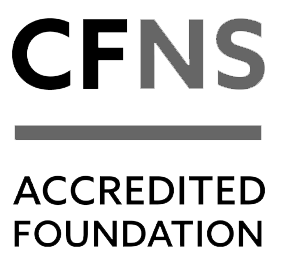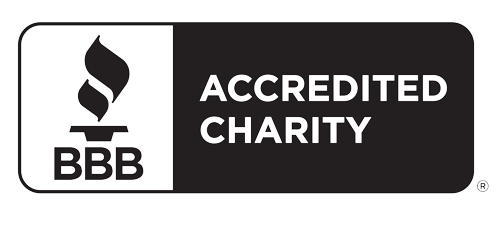Dear Friends,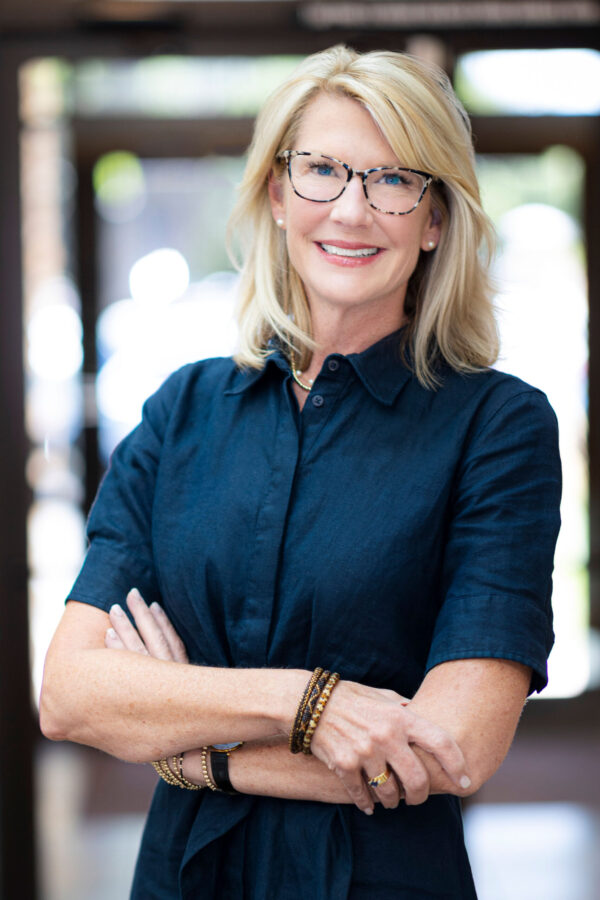
There’s a saying in our field: If you’ve seen one community foundation, you’ve seen one community foundation. And after four and a half years leading the NoCo Foundation, I can tell you that’s true—because each one reflects the community it serves.
For 50 years, the NoCo Foundation has grown right alongside Northern Colorado. What began as a traditional grantmaker has become something bigger: a partner in philanthropy, a champion for nonprofits, and a convener helping leaders work together for regional success.
We often describe our work in three buckets: philanthropy, nonprofit support, and community engagement. Together, they represent how we serve this region every day—helping people turn generosity into impact, strengthening the nonprofits that support our quality of life, and bringing partners together to tackle shared challenges like housing, water, and growth.
Community is our business, and everyone has a role to play. Thank you for being part of this work with us—and for helping Northern Colorado stay strong, connected, and ready for what’s next.
With gratitude,
Kristin Todd
President and CEO
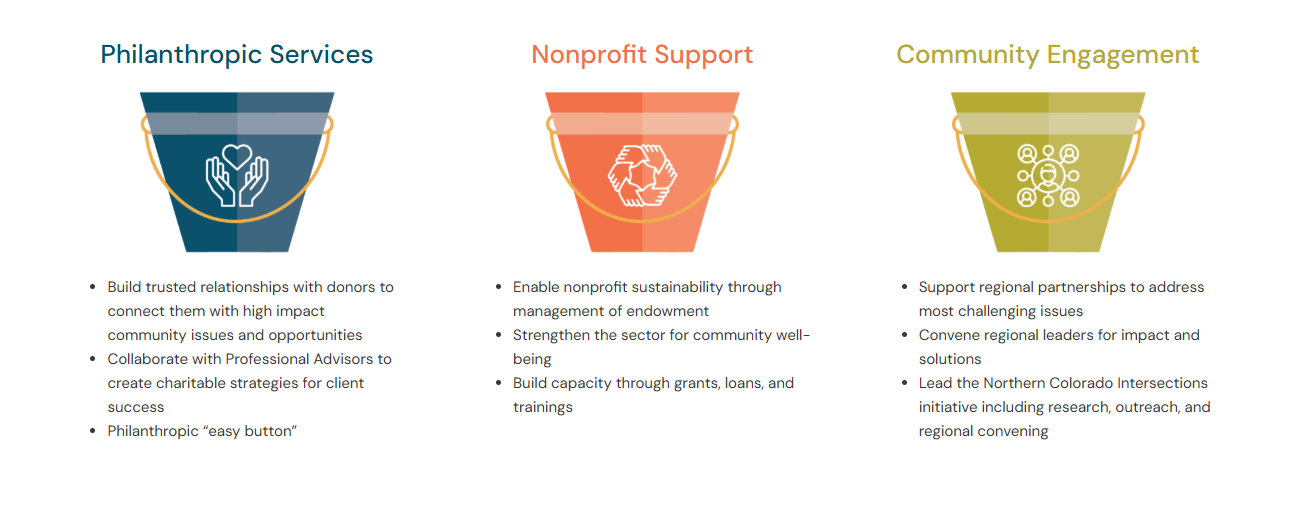
Our 2025 Impact Report is Now Live!
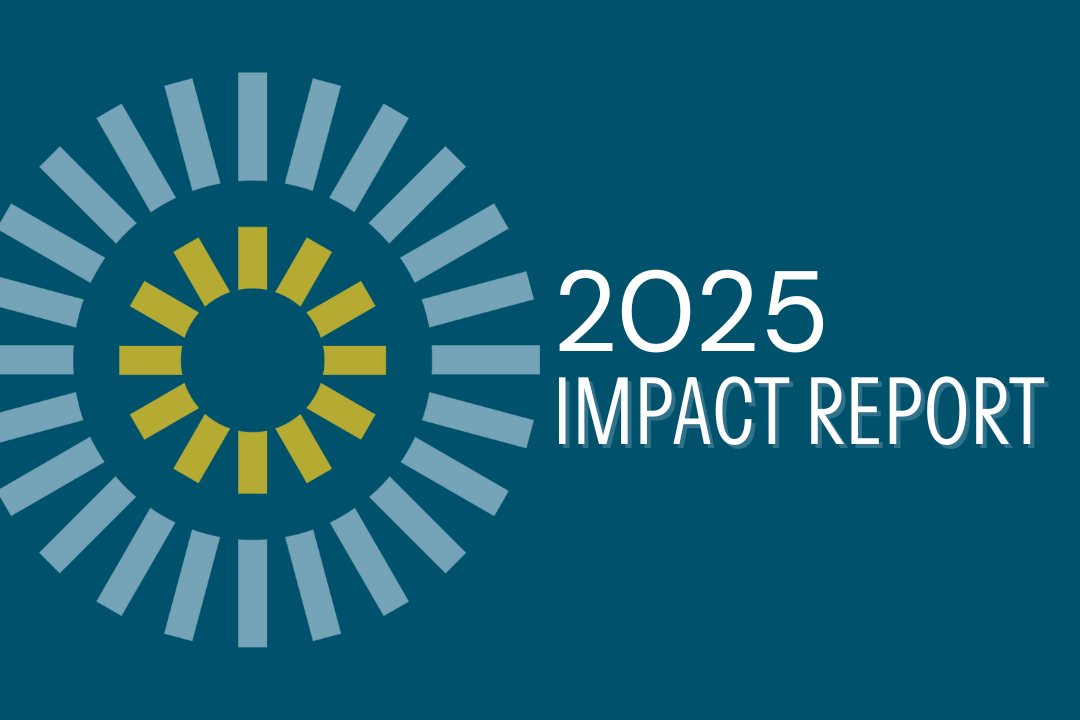 We're excited to share that the NoCo Foundation's 2025 Impact Report is officially live. This past year marked an incredible milestone for our organization—from celebrating our 50th anniversary to launching new initiatives and completing our largest grantmaking year to date.
We're excited to share that the NoCo Foundation's 2025 Impact Report is officially live. This past year marked an incredible milestone for our organization—from celebrating our 50th anniversary to launching new initiatives and completing our largest grantmaking year to date.
Inside the report, you'll find data and highlights that reflect the impact made possible by our donors, partners, and community members. It also offers a glimpse into what's ahead as we continue working together to strengthen Northern Colorado.
Thank you for being part of this journey with us. We're proud of what we've accomplished together—and even more excited about what's next.
Introducing the NoCo Voices Podcast
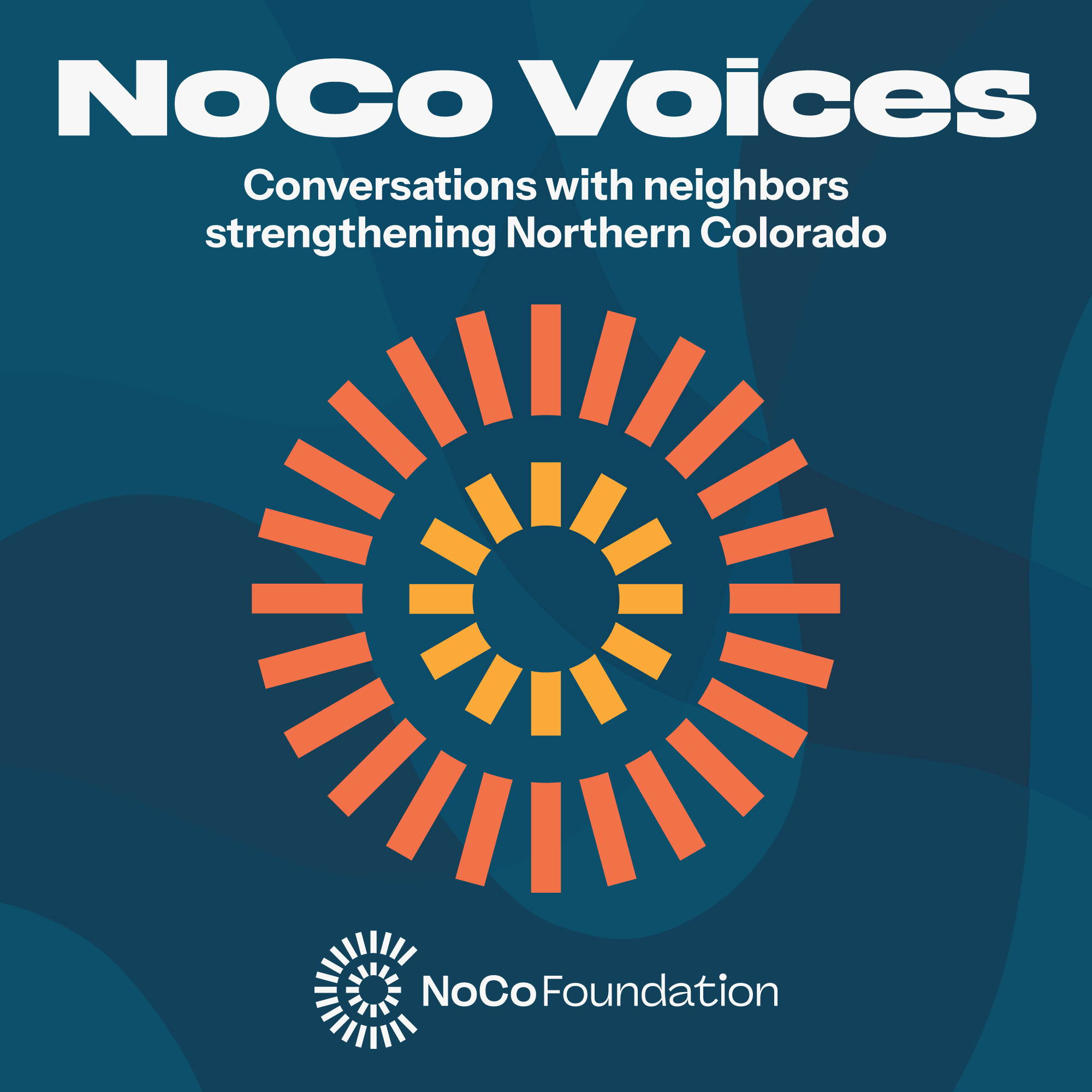 Would you like to meet the people who are stepping up, giving back, and strengthening our region? Would you like to hear positive regional news? If you answered yes to either question, you are in luck! The NoCo Foundation is launching our first podcast series in March 2026, on KRFC 88.9FM and streaming online.
Would you like to meet the people who are stepping up, giving back, and strengthening our region? Would you like to hear positive regional news? If you answered yes to either question, you are in luck! The NoCo Foundation is launching our first podcast series in March 2026, on KRFC 88.9FM and streaming online.
The NoCo Voices Podcast: Conversations with neighbors strengthening Northern Colorado, will air monthly and will share stories of connection, collaboration, and community impact across Northern Colorado. The podcast is made possible through the generous support of KRFC 88.9FM. Streaming information will be shared in early March through the Inspire Newsletter, nocofoundation.org, and on social media.
A Regional Approach to Housing: NoCo Foundation’s New Work Is Underway
 Northern Colorado’s housing challenges are accelerating and so are our efforts to address them. Our new Regional Housing Officer, Brooke Cunningham, is leading five cross-sector workgroups focused on the biggest market barriers affecting affordability and attainability across the region.
Northern Colorado’s housing challenges are accelerating and so are our efforts to address them. Our new Regional Housing Officer, Brooke Cunningham, is leading five cross-sector workgroups focused on the biggest market barriers affecting affordability and attainability across the region.
From creative financing tools to public understanding to regional collaboration, these groups are beginning the foundational and regionally-focused work needed to make solutions possible across Northern Colorado.
Read Brooke’s full story and learn how the NoCo Foundation is stepping into big regional work and how you can get involved.
To stay informed on the latest housing news in Northern Colorado, we invite you to subscribe to our new newsletter, NoCo Housing Update.
Scholarship Applications Are Now Open!
The 2026-2027 scholarship applications are now open!
Applications for our scholarships are now open until March 15, offering students meaningful support as they work toward their educational and career goals.
Our scholarships cover a diverse range of fields and disciplines, reflecting our commitment to supporting a broad spectrum of interests and career aspirations. We take pride in our role as catalysts for positive change and personal growth. Our scholarship recipients excel academically and actively contribute to their communities, leaving a lasting impact on society.
This opportunity exists because of our dedicated donors. Your generosity is more than financial support—it's a vote of confidence in the next generation. Thank you for helping create pathways to success and for investing in the future of our community.
Check out our scholarship opportunities and submit your application by March 15!
Making More Good Possible
At NoCo Foundation, our work is rooted in the belief that lasting change happens when people come together around shared goals. Through close collaboration with generous donors, committed nonprofit partners, and engaged community members, we support efforts that strengthen Northern Colorado in meaningful, tangible ways.
Whether it's investing in local nonprofits through grantmaking, expanding opportunities for the next generation through scholarships, convening partners around regional challenges, or stewarding resources during times of crisis, our role is to help ideas grow into impact. This collective approach allows us to respond to community needs as they evolve—and to support solutions that are shaped by the people closest to the work. The NoCo Foundation helps make more possible.
Thank you to Comcast for creating this PSA for us. You may have seen it being aired on local channels recently.
Supporting the Nonprofit Sector
Many of us are aware of the challenges the nonprofit sector is facing right now. While the NoCo Foundation does not have all the answers, we are actively shining a spotlight on the nonprofit sector and the vital role it plays in our community. We want to highlight a few of the ways we aim to amplify nonprofits in Northern and Northeastern Colorado.
Nonprofit Newsflash
Nonprofit Newsflash is a simple way for you to share your good news with our community. This is our way of highlighting the impact nonprofits are creating and spreading the news to our audience. Any 501(c)3 can submit their news through our form, and we will share it on our social media accounts. Read through the guidelines, learn more, and submit a Nonprofit Newsflash!
A New Benefit for our Nonprofit Agency Fundholders
The NoCo Foundation hosts endowed and non-endowed funds for nearly 100 organizations in our community. We are proud to partner with nonprofits to grow reserves to help support long-term financial goals and shine a little on these organizations. We've recently launched a new feature on our website that highlights our agency fund partner organizations.
Discover Nonprofits by Intersection
Our Discover Nonprofits by Intersection page allows the public to discover nonprofits based on where their work falls in our six Intersections. Our 2024 Northern Colorado Intersections Report identified six key intersections where pressures and opportunities converge. These intersections include Connecting, Beautifying, Nourishing, Renewing, Sheltering and Caring, and Transacting.
With this new feature, prospective donors can easily search or browse to better understand the nonprofit landscape. So be sure to check it out and learn more.
We will continue to add to this resource as we gain new nonprofit partners, making it an easy tool for donors to learn about different nonprofits all in one space.

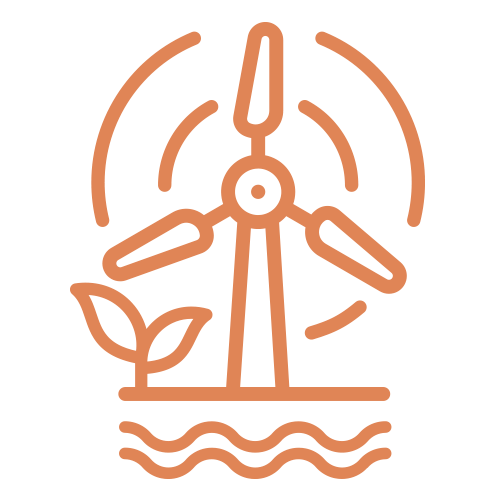



Giving Opportunities Catalog — Now Open
Our Giving Opportunities Catalog connects donor-advised fundholders directly with project-based funding needs from nonprofit partners across our community. Nonprofits share specific, timely projects—and donors can choose the ones that align most with their giving goals.
It's an easy way to explore what's happening on the ground and make a targeted impact where it matters most.
The current Catalog closes February 11. If you're a DAF holder, we invite you to review the opportunities and recommend a grant before it closes.
Upcoming Webinars
In partnership with First Western Trust, the NoCo Foundation welcomes Greg Ring, Co-Founder of Philanthropy Architects, for three webinars designed to spark insight and action. Each 50-minute session is tailored for nonprofits, professional advisors, and donors and fundholders. Explore the sessions below and register for the one that's right for you.
Stay Informed. Stay Connected.
We recently launched two new newsletters from the NoCo Foundation—The Resourceful Advisor, with content catered toward professional advisors, and NoCo Housing Update, which will share news and updates on affordable housing and our work in this space. If you would like to receive either of these newsletters, please sign up through the link below and select which newsletters you would like to receive.




